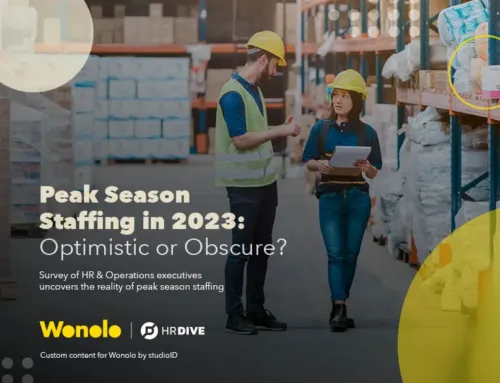Wonolo
An investor and writer based out of Silicon Valley, Semil Shah created and invests out of a small fund called Haystack, which is proud to be an early investor in over 70 companies, including some of the hottest startups that we can’t live without like Instacart, Door Dash, and Giphy, a Wonolo team favorite for taking our internal email threads and Slack messages to the next level. He is also Venture Partner to GGV Capital, and proudly serves on the Advisory Boards of StrictlyVC and The Alpha Network.
Given his deep roots in the world of entrepreneurship and his knack for spotting the next big thing, we were eager to pick his brain on the gig economy and shifts in U.S. workforce dynamics. To learn more about these topics and more, including the greatest lesson he’s learned while working in the startup world, read on.
- You’ve invested in companies like DoorDash and Instacart that are part of the gig economy ecosystem. What attracted you to making these investments?Lucky for you all (and me), I wrote them here — aboutInstacart and about Door Dash. For example, with Instacart, week in and week out, people either “loved” the service or were waiting to get it in their location.I started to dig in more and realized Instacart was not just about grocery delivery — it is about machine learning (to predict supply and demand), vertical search, intelligent pricing (based on the algorithms), customer segmentation, and logistics. It just happened to deliver groceries.
- The gig economy, with the whole “Uber for X” concept, is becoming more and more crowded. What are some of the factors that will ultimately separate the winners from the losers?There’s a short-term and longer-term answer. In the short-term, I have always expected some carnage and consolidation. The immediate winners will have diverse revenue streams and empower others to earn from their platform.In the long-run, one has to imagine that much of the cost of delivery will be automated or augmented (through robotics, lockers, etc.), which will reduce costs for consumers and for the companies providing those services.
- By 2020, a study estimates that more than 40% of the American workforce, or 60 million people, will be independent workers. Do you agree with this projection? Why or why not?I don’t know about the number or percentage, but I’m sure this class will increase in size. Part of it is structural, in that many people can make more in a better market outside of a firm; they themselves can be their own firm.Part of it is psychological and attitudinal, according to generational shifts, where people want to travel more, have more control of their schedule, be their own boss, etc. Of course, some of these people won’t be as enterprising, and they will have to figure out a way to obtain health insurance and other key safety net services.
- Why do you think that the dynamics of the workforce have changed so much in the last decade?The easy answer is globalization. The more complicated answer is that, as technology spreads through industries, software helps automate away traditional human/hourly labor, and our educational society and systems haven’t been training the next generations to pick up the range of skills required in a world where machines, connected to the Internet and running software, will be all around us.Put more bluntly, much of our higher education system is more of an extension of adolescence and creates cushy spots for people to explore humanities (which is great, by the way) but at the expense of asking: How will this knowledge be applied in the real world?
- Everything from white collar jobs to e-commerce fulfillment has gone the way of the gig economy. What do you foresee as the next type of job category to become part of the gig economy?Professional consulting firms, among hundreds of others.
- And finally, based on your personal experience in the startup world, what’s the greatest lesson that you’ve learned?That if your intent is pure, that if you actively listen, and if you can briefly and economically state your case, there will be hundreds of amazing people who will help you get from A to B.


![[Report] Beyond the Gig: Exploring Reliable Work Options for the Modern Workforce](https://info.wonolo.com/wp-content/uploads/2023/10/Worker-Preferences-Report-Header-Image-500x383.png)



